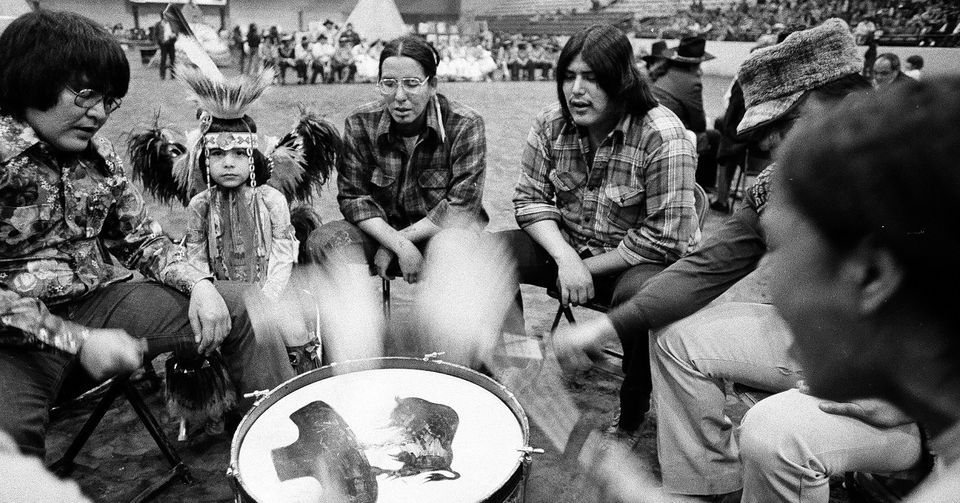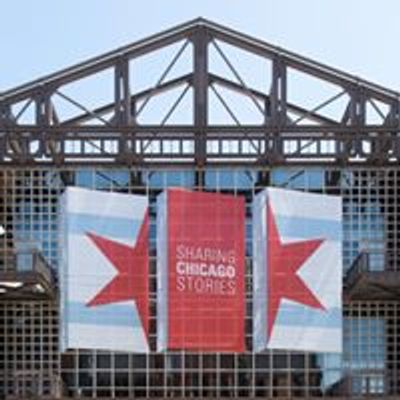
Advertisement
Included with general admission, which is FREE for Illinois residents on this day. RSVP appreciated but not required.On October 8, 2021, President Joseph R. Biden Jr. issued a presidential proclamation stating that “(o)n Indigenous Peoples’ Day, our Nation celebrates the invaluable contributions and resilience of Indigenous peoples, recognizes their inherent sovereignty, and commits to honoring the Federal Government’s trust and treat obligations to Tribal Nations.” In commemoration of Indigenous Peoples’ Day, join us at CHM for discussions examining Native histories and the ongoing contributions of Indigenous peoples to the Museum and city.
For thousands of years, the place now known as Chicago was a thriving center of Indigenous life. Potawatomi people lived on and took care of the land until they were forced out by non-Native settlers. The Ojibwe, Odawa, Peoria, Kaskaskia, Miami, Mascouten, Sac and Fox, Kickapoo, Ho-Chunk, Menomonee, and tribes whose names have been lost as a result of genocide also lived, gathered, and traded in this region. In 1833, the US government imposed the Treaty of Chicago, which forced most Potawatomi to leave the area.
Chicago today owes much to the Indigenous peoples of this land. In fact, the city’s name comes from “Checagou,” likely derived by French traders from the word “Zhegagoynak.” In Potawatomi, “zhegagosh” means “wild onion” and “nak” means “the place of.”
During World War II, many Native people began migrating to Chicago, and Indigenous peoples continue to play a vital role in the city. In fact, Chicago has the third largest urban Native American population in the US following generations of forced removal, relocation, and assimilation practices common throughout the nation.
SCHEDULE
1:30–2:30 p.m. – Panel Discussion
CHM director of collections Julie Wroblewski and project archivist Lydia Wood discuss the work that CHM has done with our collecting practices of Indigenous objects. 1st floor, Guild Room (next to North & Clark Café).
3:00–4:00 p.m. – Drop-in Q&A
Chicago sits on the land of the Potawatomi people, but who are the Potawatomi? What did their lives look like before the city was established and what do their lives look like today? Bring your questions for Indigenous scholar Starla Thompson, who will share stories from her lived experience and the history about this Chicago community. 1st floor, Guild Room (next to North & Clark Café). Light refreshments available. All ages welcome.
Starla Thompson is an educator, scholar, dancer, advocate, and mother whose work is directly influenced by her lived experiences as a Potawatomi woman born and raised in Chicago, ancestral Potawatomi land. She is an enrolled member of the Forest County Band of Potawatomi residing in northern Wisconsin. Deepening the understanding of her Native culture is a treasured legacy.
4:00–5:00 p.m. – Virtual Author Talk
Professor John Low of the Ohio State University speaks about his book Imprints: The Pokagon Band of Potawatomi Indians and the City of Chicago (2016) and his work with CHM as a board member and consultant. Join this Zoom session: https://us02web.zoom.us/j/87174348339?pwd=SWJxelRoaFM4Q0RmSldCRmEvVUtqdz09
Meeting ID: 871 7434 8339
Passcode: 027983
While masks are recommended and appreciated, they are no longer required in most areas of the Museum. Learn more about our COVID-19 safety policies and procedures: https://www.chicagohistory.org/covid19safety/
Advertisement
Event Venue & Nearby Stays
Chicago History Museum, 1601 N Clark St,Chicago,IL,United States
Tickets
